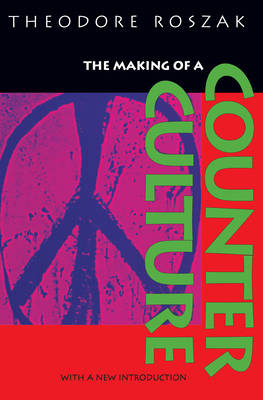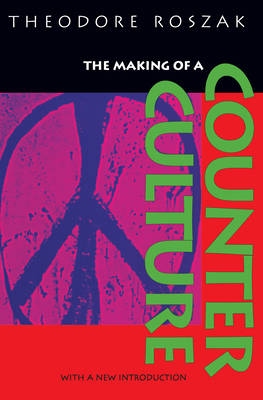
- Afhalen na 1 uur in een winkel met voorraad
- Gratis thuislevering in België vanaf € 30
- Ruim aanbod met 7 miljoen producten
- Afhalen na 1 uur in een winkel met voorraad
- Gratis thuislevering in België vanaf € 30
- Ruim aanbod met 7 miljoen producten
Zoeken
The Making of a Counter Culture
Reflections on the Technocratic Society and Its Youthful Opposition
Theodore Roszak
Paperback | Engels
€ 41,95
+ 83 punten
Omschrijving
When it was published twenty-five years ago, this book captured a huge audience of Vietnam War protesters, dropouts, and rebels--and their baffled elders. Theodore Roszak found common ground between 1960s student radicals and hippie dropouts in their mutual rejection of what he calls the technocracy--the regime of corporate and technological expertise that dominates industrial society. He traces the intellectual underpinnings of the two groups in the writings of Herbert Marcuse and Norman O. Brown, Allen Ginsberg and Paul Goodman. In a new introduction, Roszak reflects on the evolution of counter culture since he coined the term in the sixties.
Alan Watts wrote of The Making of a Counter Culture in the San Francisco Chronicle in 1969, "If you want to know what is happening among your intelligent and mysteriously rebellious children, this is the book. The generation gap, the student uproar, the New Left, the beats and hippies, the psychedelic movement, rock music, the revival of occultism and mysticism, the protest against our involvement in Vietnam, and the seemingly odd reluctance of the young to buy the affluent technological society--all these matters are here discussed, with sympathy and constructive criticism, by a most articulate, wise, and humane historian."
Alan Watts wrote of The Making of a Counter Culture in the San Francisco Chronicle in 1969, "If you want to know what is happening among your intelligent and mysteriously rebellious children, this is the book. The generation gap, the student uproar, the New Left, the beats and hippies, the psychedelic movement, rock music, the revival of occultism and mysticism, the protest against our involvement in Vietnam, and the seemingly odd reluctance of the young to buy the affluent technological society--all these matters are here discussed, with sympathy and constructive criticism, by a most articulate, wise, and humane historian."
Specificaties
Betrokkenen
- Auteur(s):
- Uitgeverij:
Inhoud
- Aantal bladzijden:
- 346
- Taal:
- Engels
Eigenschappen
- Productcode (EAN):
- 9780520201224
- Verschijningsdatum:
- 18/10/1995
- Uitvoering:
- Paperback
- Formaat:
- Trade paperback (VS)
- Afmetingen:
- 142 mm x 210 mm
- Gewicht:
- 403 g

Alleen bij Standaard Boekhandel
+ 83 punten op je klantenkaart van Standaard Boekhandel
Beoordelingen
We publiceren alleen reviews die voldoen aan de voorwaarden voor reviews. Bekijk onze voorwaarden voor reviews.








